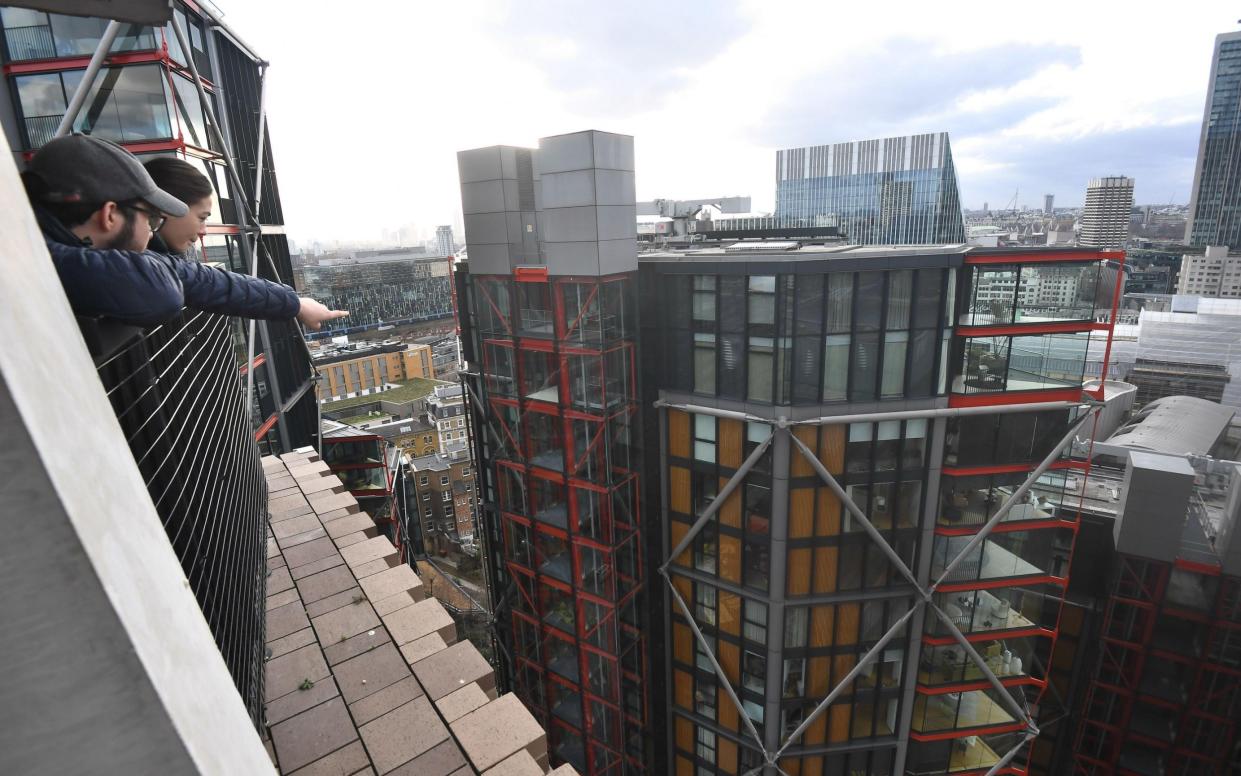Neighbours win Tate Modern privacy fight over viewing platform that turned them into a ‘public exhibit’

Tate Modern may be forced to close off part of a controversial £260 million viewing platform after losing a legal battle over privacy with neighbours in nearby luxury flats.
Residents of four flats in the Neo Bankside development, which boast walls almost entirely made of glass, complained that the panoramic Blavatnik viewing platform - opened in 2016 - overlooked their homes and allowed Tate's 500,000 annual visitors to see inside.
A legal case brought by Ian and Helen McFayden, Giles Fearn, Gerald Kraftman and Lindsay Urquart was previously dismissed by judges, with residents advised to use blinds or “net curtains” to stop tourists seeing into their homes.
In 2020 there was another setback for residents, when the Court of Appeal took the view that one building simply overlooking another could not be deemed a common law “nuisance” - the kind of issue that impinges on people enjoying their property, such as neighbours playing music too loud.
However on Wednesday, the Supreme Court judged that residents of the luxury flats have in fact suffered a “nuisance” as a result of the viewing platform, which allows the gallery's thousands of visitors to intrude into their privacy.

It said they should not have to hide behind curtains or live as if "on display in a zoo". It also said the platform “wrongfully interferes with the ordinary use and enjoyment of neighbouring land”.
The judgment noted that it was not for residents to use blinds or curtains to block the view into their homes, but for Tate to take action to remedy the loss of privacy.
Lord Leggatt delivered the judgment, which stated something needed to be done because: “The claimants' flats are under near constant observation by visitors to the viewing platform.
“There are hundreds of thousands of spectators each year and many take photographs and post them on social media.”
It emerged that judges cited a medieval legal wrangle, involving a fishmonger being forced to dismantle a watchtower overlooking their neighbour's land, to support the judgment.
Lawyers for the residents have said that one way to resolve the privacy row would be for the gallery to cordon off part of the platform facing the affected flats, or erect screening to block the view.
Architect Ms Urquart previously stated she felt “exposed” in the shadow of Tate, while Mr McFayden felt obliged to be “properly dressed” at all times beneath the public gaze.
Ms Fearn said “obscene gestures” were made by people on the viewing platform, while Mr Kraftman felt uncomfortable having his grandchildren visit while they could be observed from above.
The claimants said the platform had turned their lives into "a public exhibit”.

Natasha Rees, from the legal firm Forster, said: “Our clients are both pleased and relieved that nearly six years after they began their claim, the Supreme Court has now found in their favour.
“Lord Leggatt, giving the majority judgment, recognised how oppressive it can be to live ‘under constant observation from the Tate’s viewing gallery for much of the day, every day of the week … much like being on display in a zoo’.
“Our clients now look forward to working with the Tate as valued neighbours to find a practical solution which protects all of their interests.”
A Tate spokesman said: “We thank the Supreme Court for their careful consideration of this matter. The Supreme Court has referred the case back to the High Court and as the case is ongoing we cannot comment further.”

 Yahoo Movies
Yahoo Movies 
